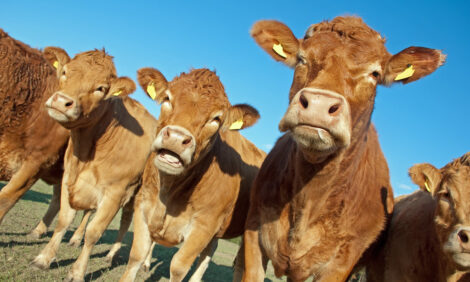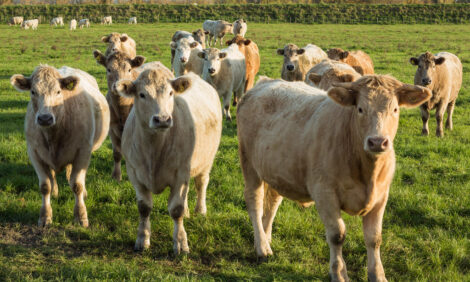



Agriculture a Key Area for Collaboration, Say Leaders
AFRICA & CHINA - African countries are enthusiastic about Chinese assistance in agriculture and infrastructure, as the continent attempts to eradicate hunger in a decade and speed up modernization to achieve the aspirations of the African Union's Agenda 2063, senior African officials say.The agenda, adopted by the African Union in 2015, aims to see Africa become a prosperous continent with the means and resources to drive its own development by 2063.
Nonofo Ezekiel Molefhi, Botswana's minister of presidential affairs, governance and public administration, said agriculture offers plenty of opportunities for partnerships that can boost employment and combat poverty.
During a tour of successful poverty relief projects in Bijie, Guizhou province, in mid-August, he said Chinese methods of cultivating high-protein, fast-growing grass for livestock, which have already benefited African countries including Rwanda and South Africa, could be used to upgrade Botswana's animal farms, such as those raising Botswanan goats.
"We can also look at other opportunities in terms of agricultural production," he said.
Josefa Leonel Correia Sacko, the African Union's commissioner for rural economy and agriculture, echoed Molefhi's comments while speaking at the poverty reduction and development conference of the 2018 Forum on China-Africa Cooperation in Beijing on 14 August.
"Agriculture is to Africa what the central nervous system is to the human body," she said, adding that African agriculture, plagued by low mechanization and a high dependence on rainfall, could enjoy new opportunities as Chinese investment in and partnerships with African research institutes and universities accelerate the sector's transformation.
Clifford Katondo Tandari, regional administrative secretary for Morogoro, Tanzania, said simple technologies could allow farmers in some places to double or even triple their output, which is crucial in relieving poverty.
Impressed by China's excellent road network, he said he expects stronger partnerships in infrastructure that aim to improve connectivity.
"Better linkages mean that farmers can access enough fertilizers, and their produce could reach urban markets where they can receive better prices," Mr Tandari said.
Emmanuel Freddie Mugunga, Uganda's undersecretary of science, technology and innovation, said China has offered help in building roads and dams in his country, but he called for more collaboration in training young engineers, scientists and entrepreneurs.
"We have lots of young people with lots of ideas, but they do not have the workplaces with shared facilities where they can go and concentrate and do things and get taught new skills."
According to official estimates, by 2025 Africa will be home to 200 million people between the ages of 15 and 24, while one-fourth of the world's population under 25 will be from Africa. Every year about 10 million Africans join the workforce.
China has vowed to help African countries train more young talent in poverty relief as part of its effort to strengthen exchanges under the framework of the Belt and Road Initiative.
The country will continue to hold training sessions on poverty reduction tailored to African countries and introduce training methods to ensure that efforts deliver real benefits, Liu Yongfu, director of the State Council Leading Group Office of Poverty Alleviation and Development, said at the opening ceremony of FOCAC's poverty reduction and development conference.
"China and African countries have accumulated rich experience in self-development and poverty reduction," he said. "China is willing to strengthen exchanges with African countries to benefit both parties."
China has held 133 poverty reduction seminars and shared its experience with 3,587 representatives from 133 countries and regions, including 2,122 from 52 African nations, Mr Liu said.
China has reduced extreme poverty by more than two-thirds over the past five years, according to figures from the central government, which has pledged to eradicate extreme poverty by the end of 2020.
TheCattleSite News Desk


